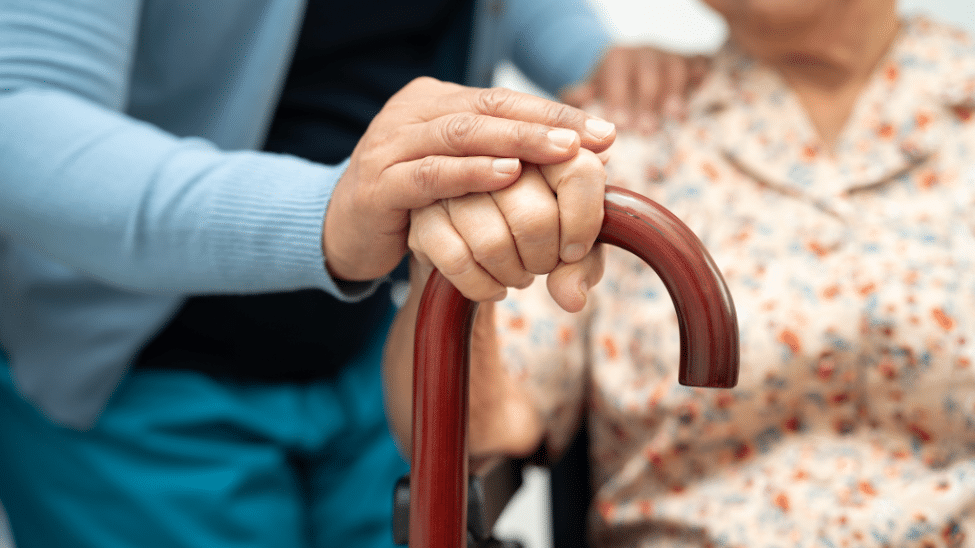As our loved ones grow older, their needs often evolve in ways that require additional support. Recognizing when aging care support is necessary can be challenging, especially if changes happen gradually. However, being proactive and attentive can ensure your loved one receives the assistance they need to maintain their quality of life.
This article explores key signs that indicate the need for aging care support and provides guidance on how to address these issues effectively. With nine years of expertise in helping families navigate aging-related challenges, Elder Care Direction offers valuable insights into the process.
Recognizing Physical Decline
Difficulty with Mobility
One of the earliest signs that a loved one may need aging care is difficulty moving around the house or performing routine tasks. Struggling to climb stairs, frequent falls, or reliance on furniture for support are indicators that additional assistance may be necessary.
Aging care solutions, such as hiring a professional caregiver or modifying the home to make it safer, can help address mobility challenges while allowing your loved one to remain as independent as possible.
Neglecting Personal Hygiene
Physical decline can also manifest in neglected personal hygiene. If you notice your loved one is not bathing regularly, wearing the same clothes for days, or forgetting basic grooming routines, it may be time to consider aging care support.
A caregiver can assist with personal hygiene tasks in a respectful and compassionate way, ensuring that your loved one maintains their dignity and comfort.
Changes in Cognitive Abilities
Memory Loss
Occasional forgetfulness is normal, but persistent memory lapses—such as forgetting appointments, misplacing items frequently, or repeating questions—could signal a cognitive decline. Conditions like dementia or Alzheimer’s often begin with mild memory issues that worsen over time.
Seeking guidance from experts like Elder Care Direction can help you determine the appropriate level of support and resources needed to manage cognitive challenges effectively.
Confusion and Disorientation
If your loved one becomes easily confused, struggles to follow conversations, or gets lost in familiar places, these are red flags that indicate they may need professional care. Cognitive impairments can compromise their safety, particularly if they live alone.
Implementing solutions like memory care programs or having a dedicated caregiver available can ensure their safety while providing emotional support.
Signs of Emotional and Social Withdrawal
Loss of Interest in Activities
Another indication that aging care support may be needed is when your loved one loses interest in hobbies or activities they once enjoyed. This could be a sign of depression, loneliness, or physical discomfort.
Encouraging social interaction through community programs or engaging activities can significantly improve their mental health. Organizations like Elder Care Direction can connect families with resources to combat isolation and promote well-being.
Avoiding Social Interactions
If your loved one starts avoiding family gatherings, outings with friends, or other social interactions, this could indicate emotional distress or difficulty managing the demands of socializing. Aging care solutions can provide companionship and foster opportunities for connection, ensuring that they feel supported and valued.
Financial and Household Management Struggles
Unpaid Bills and Financial Confusion
Aging individuals who struggle to keep track of bills, manage their bank accounts, or budget effectively may be showing signs of cognitive or physical decline. Piles of unopened mail, overdue payments, or frequent financial mistakes are key indicators.
Aging care providers or financial advisors specializing in elder care can help organize finances, ensuring your loved one’s security and peace of mind.
Neglecting Household Chores
Another common sign is a noticeable decline in household upkeep. Accumulated clutter, dirty dishes, or unmaintained living spaces may indicate that managing daily chores has become overwhelming.
Hiring a part-time caregiver or professional cleaning services can help alleviate these burdens, creating a safer and more comfortable environment for your loved one.

Decline in Physical Health
Weight Loss and Nutritional Issues
Unexplained weight loss, frequent illnesses, or signs of malnutrition may suggest that your loved one is not eating properly. This could be due to physical difficulties in cooking, lack of appetite, or cognitive issues affecting their ability to shop for groceries.
A professional caregiver can assist with meal preparation and ensure that your loved one is receiving balanced and nutritious meals.
Managing Chronic Health Conditions
If your loved one has chronic health conditions like diabetes, heart disease, or arthritis, managing their medications and treatments might become increasingly difficult. Missing doses or taking the wrong medication can lead to serious complications.
Enlisting the support of aging care professionals or a service like Elder Care Direction ensures that these medical needs are met consistently and safely.
How Elder Care Direction Can Help
For families uncertain about the best course of action, Elder Care Direction offers a wealth of experience and resources to address aging care needs. With nine years of helping clients navigate the complexities of elder care, their team can guide you through options such as in-home care, assisted living, and financial planning.
They specialize in personalized solutions tailored to the unique needs of each individual and family, making the transition to aging care as smooth as possible.
Conclusion
Recognizing when a loved one needs aging care support can be emotionally challenging, but addressing their needs early ensures a better quality of life and peace of mind for everyone involved. From physical and cognitive decline to emotional withdrawal and household struggles, the signs of needing additional care are often clear if you know what to look for.
Organizations like Elder Care Direction and professional caregivers provide invaluable support, helping families navigate the journey with compassion and expertise. Whether it’s assistance with daily tasks, ensuring proper nutrition, or managing chronic health conditions, aging care solutions are essential for enhancing your loved one’s well-being.
